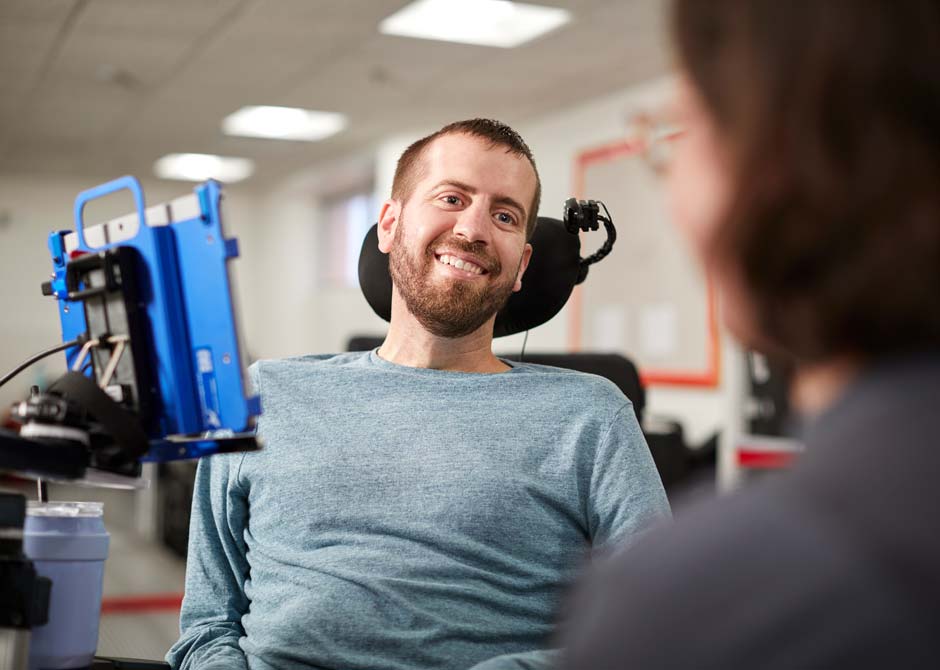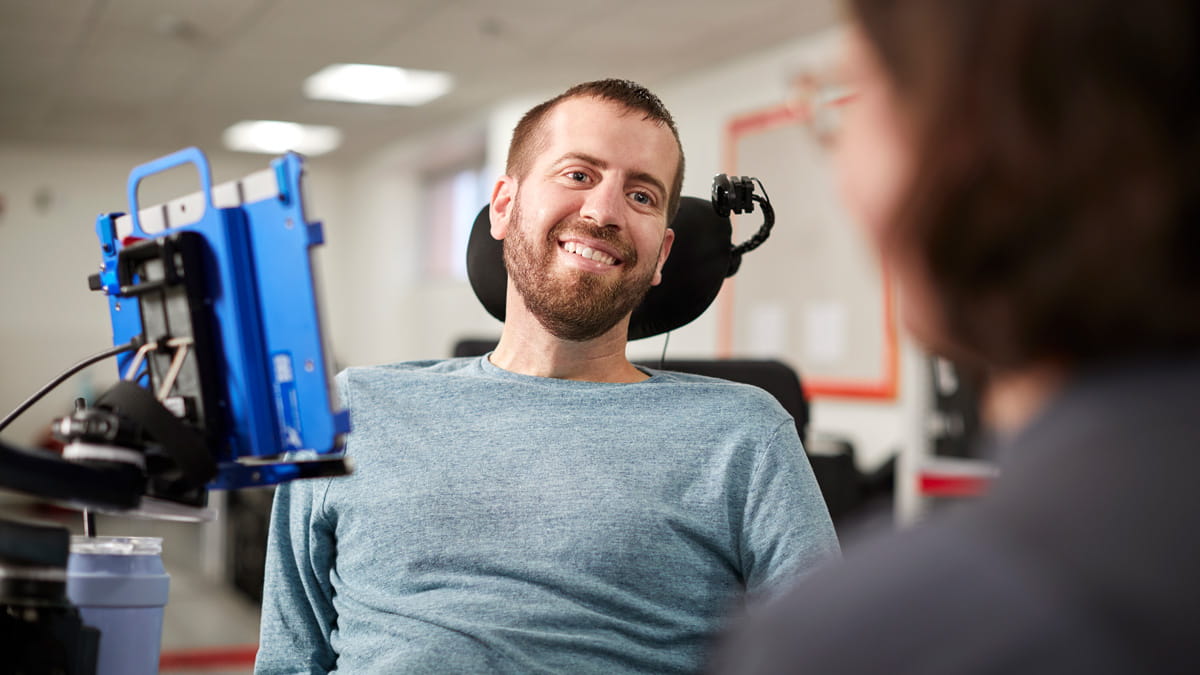 Receiving a diagnosis of amyotrophic lateral sclerosis (ALS) can be an overwhelming experience. The uncertainty of what you and your family are about to face will undoubtedly lead to a long list of questions, and it will be important to find answers from a trusted source as you navigate the future.
Receiving a diagnosis of amyotrophic lateral sclerosis (ALS) can be an overwhelming experience. The uncertainty of what you and your family are about to face will undoubtedly lead to a long list of questions, and it will be important to find answers from a trusted source as you navigate the future.
What do I do now?
That’s where ALS experts at The Ohio State University Wexner Medical Center in Columbus, Ohio, excel. During the period following diagnosis, we can confidently give you a plan of how we’ll help you manage symptoms, try new therapies being tested in clinical trials and mentally cope with the grief of living with ALS. Our multidisciplinary clinic and research program are dedicated to the care and support of those living with ALS and their families.
We’re a community of passionate people, working to improve quality of life and optimize care while fighting to better understand and defeat ALS.
Advancements in ALS at Ohio State
Stephen Kolb, MD, PhD, a neurologist, discusses the advancement in clinical trials and research in ALS.
What is ALS?
ALS is a fatal neurogenerative disease that affects the nerve cells in the brain and spine. It’s progressive, meaning symptoms worsen over time. The devastating disorder negatively impacts all types of muscular function but typically doesn’t affect cognitive abilities.
It’s often called Lou Gehrig’s disease, referring to the famous baseball player who died from the disease in the 1940s. ALS usually strikes between ages 40 and 60, but it can occur at other ages.
What causes ALS?
When someone has ALS, their motor neurons gradually deteriorate and die, which stops the neurons from being able to send messages to the muscles. Then, the muscles are unable to function.
We don’t always know why this occurs. Sometimes the disease runs in families with a certain genetic makeup (familial ALS), but most of the time, we don’t know the cause of ALS (sporadic ALS).
Why choose Ohio State for ALS care?
Where you go for care matters. Our expertise and experience in ALS is unmatched in the region, and we’re a nationally recognized leader for caring for people with ALS and their families.
We take a team approach to treatment.
We have a team of experts dedicated to the diagnosis and proactive management of the disease. Our team includes fellowship-trained neurologists, a nurse practitioner, a genetic counselor, a social worker, a dietitian, respiratory therapist, physical therapist, occupational therapist, speech therapist and clinical researchers. This diverse team collaborates in real time during your visit to optimize clinical care.
We have expertise in diagnosing ALS.
ALS can be difficult to diagnose in the early stages, often taking up to a year to receive a definitive diagnosis. Our neurologists are recognized worldwide for their ability to diagnose the most complex ALS cases, which can give you more time to focus on managing symptoms and enjoying life.
We’re experienced with ALS care.
We manage the care of more than 250 people living with ALS at any given time, and we’ve cared for thousands since the opening of our clinic in the mid-1990s. We know what people with ALS need at various stages of the disease, and we know how to best serve you at this critical time. Whether you need assistance enrolling in leading-edge clinical trials, getting a referral for home health care or finding equipment to help with daily living, we’re here to help.
We provide access to the latest treatments.
For example, we were one of the first programs in the country to administer an FDA-approved targeted gene therapy treatment for patients with ALS, who have a mutation in the superoxide dismutase 1 gene (SOD1-ALS).
We’re at the forefront of ALS research and clinical trials.
Our multidisciplinary clinic is uniquely linked to ALS research laboratories at The Ohio State University and worldwide. Stephen Kolb, MD, PhD, has established a pipeline between his laboratory and other research entities to better understand the disease and develop new therapies. Ultimately, we’re inching closer every day to finding treatments that prolong people’s lives and eventually cure the disease.
We’re paving the way for ALS genetic testing and counseling.
ALS is increasingly seen as a genetic disease. Every person treated in our ALS clinic meets with a board-certified genetic counselor who specializes in inherited neurological disorders. Jennifer Roggenbuck, MS, LGC, a genetic counselor and researcher, has developed and published the first evidence-based genetic testing for all people living with ALS. This has set the standard for how ALS genetic testing and counseling should be administered throughout the country.

ALS Patient Story: Keegan Hale
Hear from Keegan Hale about living with amyotrophic lateral sclerosis (ALS).
ALS clinical trials and research at Ohio State
Stephen Kolb, MD, PhD, a neurologist, discusses the advancement in clinical trials and research in ALS.
Additional Information
Please bring to your first appointment all records, written reports and lab results from neurologists or referring physicians, as well as a CD of MRI and other imaging results. Also prepare a written family history of neurological diseases for our discussion during your visit.

